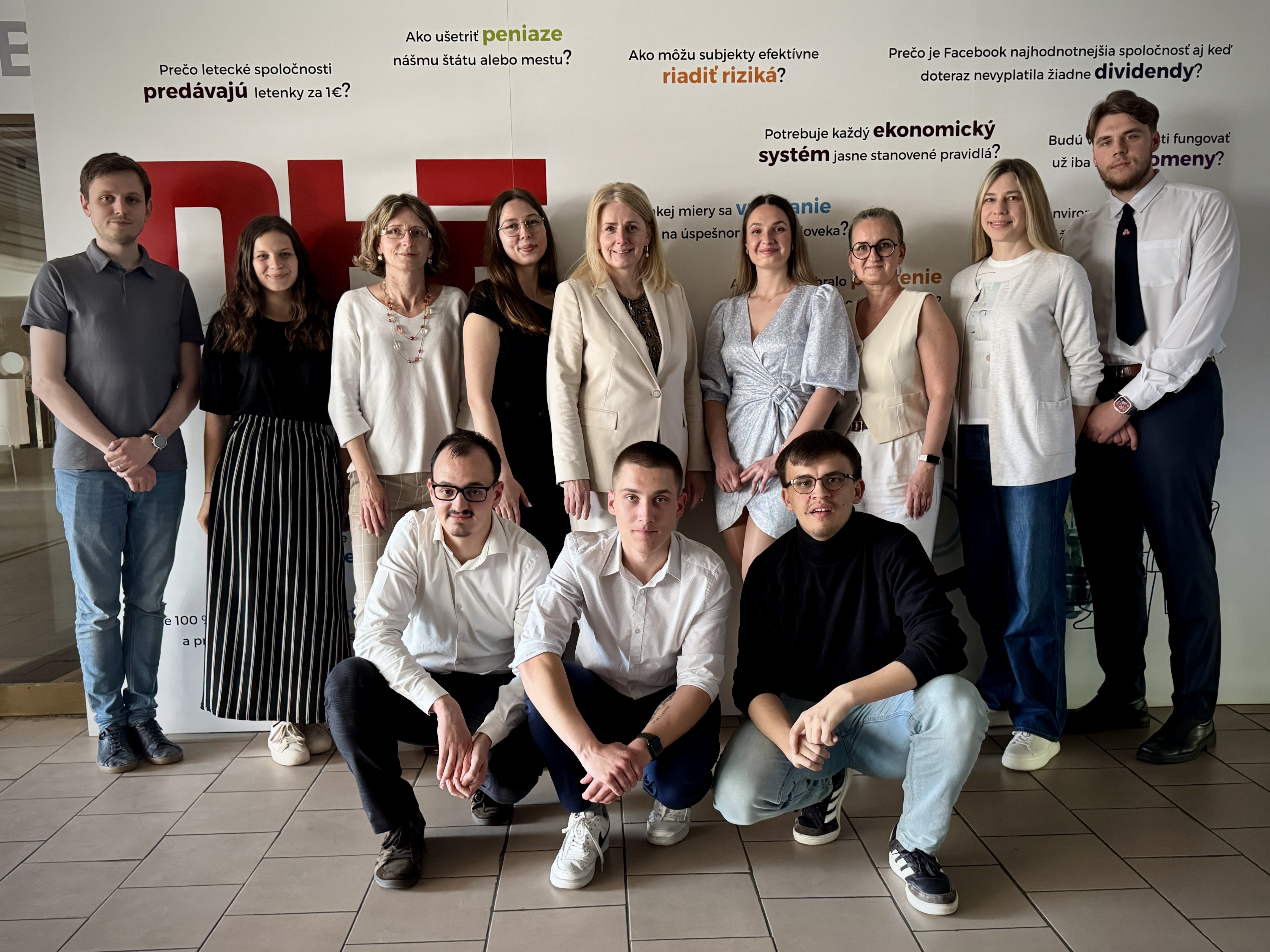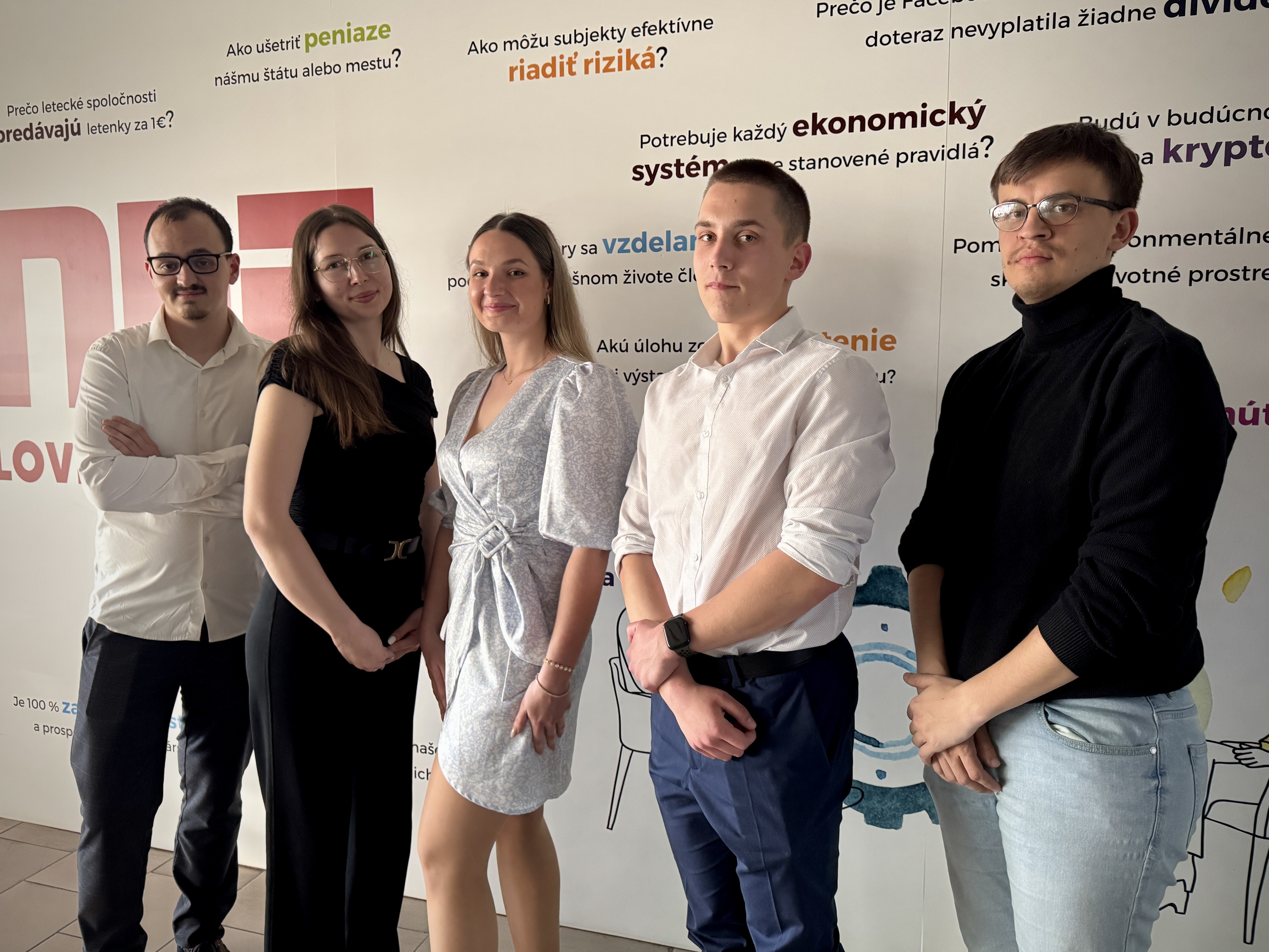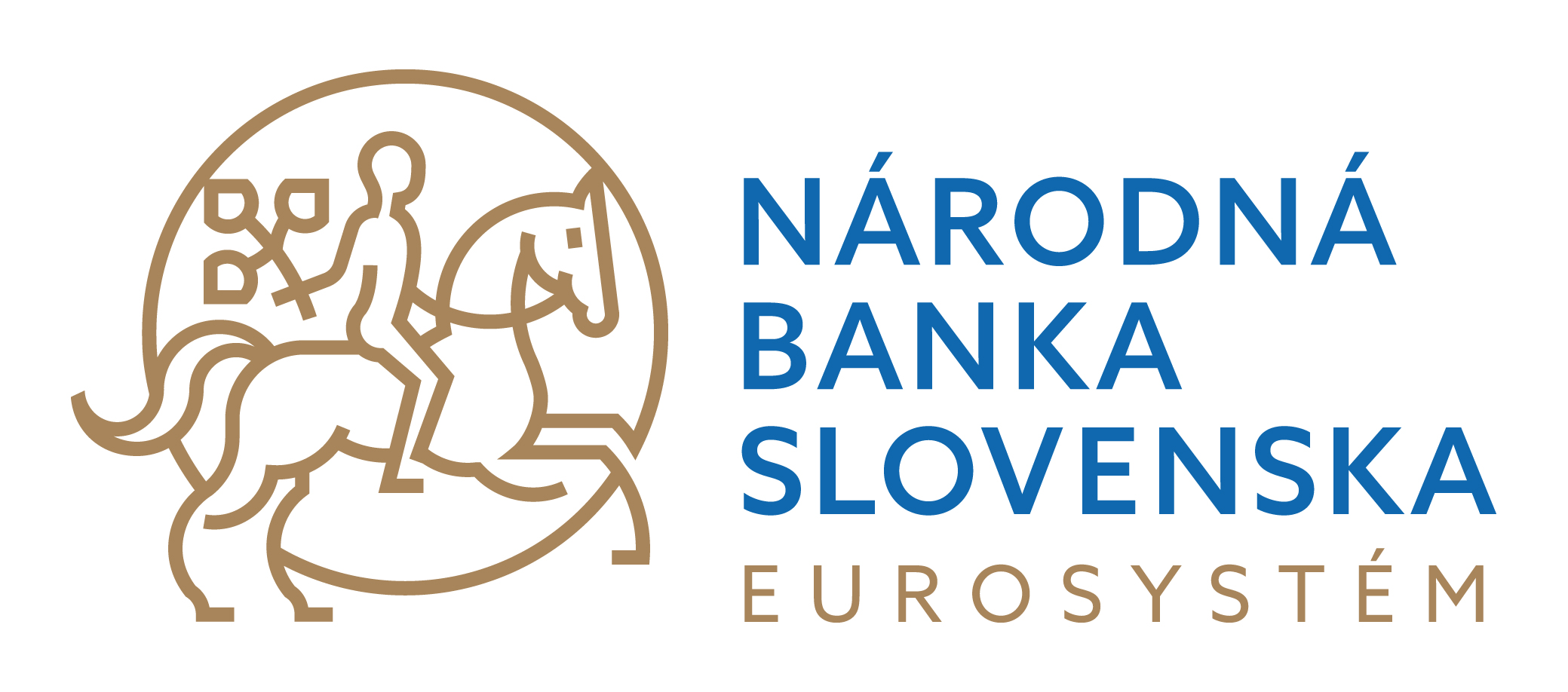This year’s Faculty Round of the Student Scientific and Professional Activity (ŠVOČ) once again confirmed that our faculty is home to exceptional students with strong research potential. Although several students registered for the competition in the winter semester, only five completed and submitted their work. However, the quality of their output clearly outweighed the quantity—demonstrating that ŠVOČ remains a space for original ideas, analytical work, and socially relevant topics.
Bachelor's Level: Labor Demand and Economics in Fiction
At the bachelor’s level, Veronika Baldižárová (Applied Economics program) won first place with her thesis An Empirical Estimate of Labor Demand Based on Online Job Listings, supervised by Tomáš Oleš. In her research, she used data from the job portal Profesia.sk to analyze the development of job postings in Slovakia—their volume, regional distribution, and occupational breakdown according to the ISCO classification. Her work stood out for its relevance, methodological rigor, and empirical precision.
Second place went to Alex Němec (Finance, Banking and Insurance), who submitted an original thesis titled The Functioning of Economic Systems in Fictional Worlds – Why Writers and Screenwriters Should Understand the Basics of Economics. Under the supervision of Matej Boór, he examined how economic principles are (and often aren’t) applied in the worlds of popular fiction. The thesis skillfully bridged economics and culture, showing that even an unconventional topic can rest on a solid analytical foundation.
Master’s Level: Tight Scoring, Strong Results
At the master’s level, the competition was extremely close—final rankings were decided by a single point. The judging committee also considered the students’ ability to present their topics clearly and effectively within a limited time. All submissions in this category were technically demanding and made use of modern quantitative methods.
The winner was Bc. Paula Gašpercová (Applied Economics), supervised by Peter Tóth, with her thesis Analyzing the Gender Pay Gap in Slovakia: What Role Does Motherhood Play? The research examined wage differences between men and women, focusing on the impact of motherhood. The results showed that a significant portion of the gap cannot be explained by observable factors such as age, education, or number of children. This finding highlights the existence of discrimination based on unobserved characteristics and marks the thesis as a meaningful contribution to public discourse.
Second place was awarded to Bc. Peter Lörinc (Applied Economics), also supervised by Peter Tóth, for his work Short-Term Forecasting of Slovak GDP Using High-Frequency Data. His research explored whether using high-frequency data improves economic forecasts. His conclusion—that such data does not automatically lead to better predictions—is a valuable insight for economic modelers and practitioners. It was also the only macroeconomic thesis in the competition.
Third place went to Bc. Juraj Tichý (Applied Economics), with his thesis Event Study: The Impact of Removing Professorial Privileges on Patent Quality, supervised by Štefan Rehák. The work employed a quasi-experimental design to assess the effects of legislative change in Europe that limited the privileged status of university professors in the patenting process. Juraj's research demonstrated not only careful use of data and methodology but also opened several new avenues for future inquiry—a hallmark of high-quality academic work.

Photo: Filip Gono












